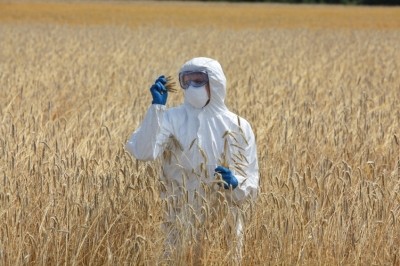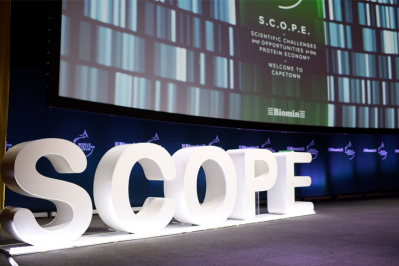Special Edition: Asia Pacific Feed Developments
EU-Sino mycotoxin alliance aimed at ‘level playing field’ in feed additive regulation

The animal studies form part of the Horizon 2020 funded four-year long initiative, MyToolBox.
“The trials were supposed to have already started at this stage, but there was a delay in the funding coming through. The Chinese partners, who had to come up with their own funding, have now secured €500K from the ministry of agriculture there to cover costs,” Dr John Gilbert, science director, FoodLife International, and MyToolBox work package leader.
The MyToolBox project estimates around 54,000 metric tons of detoxifying agents are needed in China, alone, given the scale of its pig herd in particular – some 475 million pigs are farmed in China.
With 60% of the world’s total pig population, China has no framework in place to provide guidelines for mycotoxin deactivation products.
The dairy and swine studies will take account of local conditions such as diet composition, but current EU guidelines for the registration of detoxifying feed additives will serve as the regulatory model.
“In Europe, of course, if you want to get an approval for additive in feed, a company has to submit a dossier to the European Food Safety Authority (EFSA) and demonstrate the product is safe, that there is no anti-nutritional effects, and that the additive can reduce animals’ exposure to mycotoxins,” said Gilbert.
China is participating, along with 10 other countries, in MyToolBox – the overall aim of the project is increasing the knowledge around the monitoring and reduction of mycotoxins and transferring that data to farmers and feed and food stakeholders in a way that is accessible.
One of the end goals is the establishment of a common method to prove the efficacy of mycotoxin deactivators in China in the future. “That would also help create a level playing field for additive players selling their products internationally,” said Gilbert.
Risk assessment
He said it won’t take much to convince the Chinese stakeholders of the sense in doing so, with authorities there swift to modify legislation around melamine adulteration in infant formula and animal feed after the 2008 scandal.
China can fully contribute to and benefit from Europe's research and innovation capacity under the same conditions and financial rules for participation as their peers from other emerging economies or countries outside of the EU.
Chinese participants are required to cover their participation costs in Horizon 2020 projects with their own funds.
The Asian country became one of the EU's key international partners in research and innovation through the previous Framework Program, FP7.
Gilbert is running a workshop in China at the end of next month to ensure the mycotoxin inhibition trials will tick all the boxes:
“A representative from DG Santé and project coordinator, Professor Rudi Krska of the University of Natural Resources and Life Sciences (BOKU) in Vienna, will be there to talk about the European risk assessment approach in relation to mycotoxin deactivators.
“In addition, an expert from Biomin will share that company’s know-how in mycotoxin biomarker analysis to support the feeding trials.
“The meeting will also give us a chance to thoroughly explain the study design, to talk about what is involved in the setting up of such trials, and to press home the need for the protocol to be followed. We have tried to anticipate all potential problems."
The MyToolBox coordinators have already visited the facilities in China where the trials will take place. “They probably wouldn’t enable as controlled a study as in the UK, but they are satisfactory,” said Gilbert.
Control of aflatoxins and fumonisins
The trials will incorporate both Chinese and European produced additives – one study will focus on aflatoxin control in dairy cows using binders such as clays and the other is aimed at the reduction of fumonisins (FUM) in pigs using enzyme modifiers.
“Clay pellet binders typically adsorb certain mycotoxins rendering them no longer bioavailable - they thereby lower the level of aflatoxin M1 excreted into the milk, while enzyme modifiers convert mycotoxins such as FUM into a different form in the feed, making them non-toxic,” said Gilbert.
The dairy cow study will begin first – that is set to run over six to nine months. “Then the pig study will follow.”
He said it is easier to check for lower levels of aflatoxin M1 in milk but, in terms of evaluating the effectiveness of the enzyme degrading additives, the trial partners will have to analyze blood biomarkers in pigs.
The Chinese have invested a huge amount in instrumentation, but getting up to speed on the use of such equipment is another thing altogether, noted Gilbert. “We are hoping to transfer some mycotoxin analytical expertise through the partnership. We may also investigate using a third party in Asia to screen the samples and corroborate the results.”
















